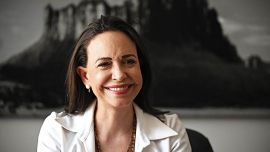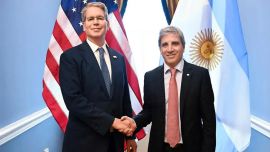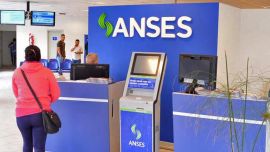Argentina’s dollar bonds jumped late on Monday after Finance Secretary Pablo Quirno said the government planned to buy back sovereign bonds to reduce financing costs for the indebted nation.
Notes maturing in 2035 rose more than a cent to trade around above 57 cents on the dollar, according to indicative pricing data compiled by Bloomberg. The currency market was closed before the announcement, with the peso edging lower for the session.
Quirno said the government has already begun negotiations for the transaction with the assistance of JPMorgan. He referred to the operation as a “debt-for-education” deal, with fresh loans from agencies and multilateral organisations used to repay higher yielding bonds. However, he didn’t specify which debt the administration was looking to repurchase, or who would make the new loans.
“The ‘education’ topic brought up by Quirno in his tweet should not be seen as a trivial hint,” said Pedro Siaba Serrate, head of research and strategy of PPI Argentina. This appears similar to the ‘debt-to-nature’ swap by Ecuador in May 2023, he said, except this time the savings will go to education rather than the environment.
The announcement comes a week before midterm elections in which the administration of President Javier Milei is looking to boost its share of Congress. Support from younger voters has waned over the past year as Milei’s spending cuts take hold.
Argentina’s debt had been swinging between gains and losses all day, with bonds soaring in the morning after the central bank issued a statement confirming that authorities had signed a US$20-billion currency swap deal with the US. But the initial excitement wore off quickly due to lack of new information and the notes retraced across the curve.
“It’s clearly positive if/when it materialises,” said Jason Keene, a strategist at Barclays. “But right now, it doesn’t change FX/electoral dynamics and market has been primed to fade headlines that lack sufficient details.”
As is the case with many of the recent financial arrangements, questions still linger. Investors are waiting for the details of the currency swap agreed with the US, as well as a separate US$20-billion facility under negotiation with private lenders. The latest announcement brought even more doubts.
“Seems extravagant,” said Gorky Urquieta, co-head of Neuberger Berman’s emerging markets debt team. They are “scrapping for cash to make the January payments, but can do a buyback?”
by Nicolle Yapur, Manuela Tobias & Maria Elena Vizcaino, Bloomberg



















Comments